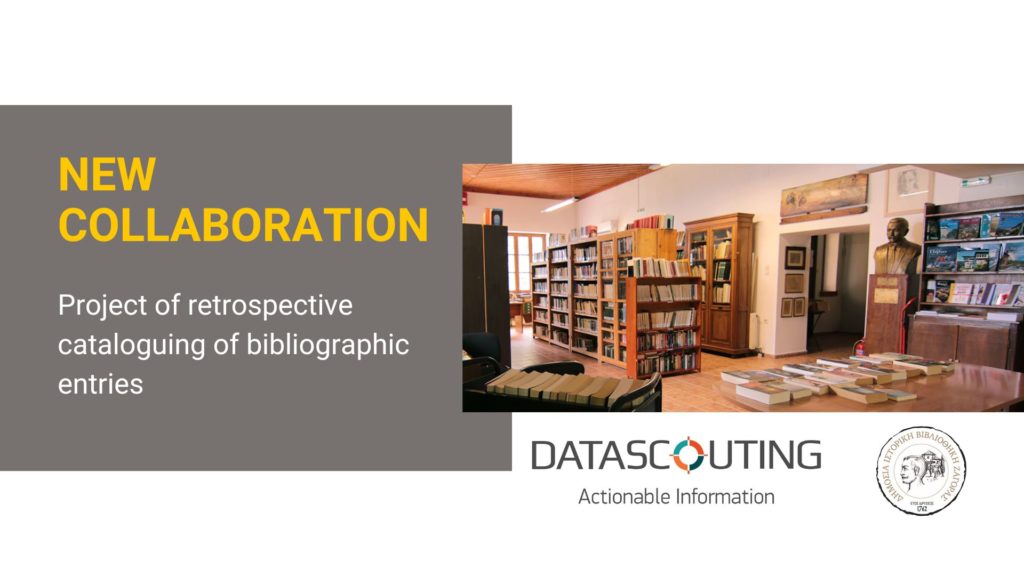Another special and demanding project of retrospective cataloguing of bibliographic entries in the Public Historical Library of Zagora was undertaken by DataScouting.
The object of the retrospective cataloguing project is the supply of 4,000 bibliographic records, which concern the rare collection of rare books of John Prigos and Patriarch Kallinikos III. The bibliographic records, which will be created in ILS Koha, structured according to the UNIMARC implementation layout, will enrich the library catalogue. The bibliographic records will describe an equal number of documents, both bibliographically and thematically. The bibliographic description of the documents will be made in accordance with the descriptive cataloguing rules of AACR2 and the ISBD bibliographic description standards, while the thematic description will be made in terms of classification, according to the library’s internal local classification and the library’s list of subject headings (LCSH).
The library of Zagora was founded in 1762, with the basic and effective contributors of the foundation and existence of this historical library, Ioannis Prigos and the Ecumenical Patriarch Kallinikos III.
Today, more than 20,000 titles of books, magazines, and about 3,500 rare books are housed in a building owned by the Municipality of Zagora, under the supervision of the Ministry of Education, Research and Religious Affairs and in recent years, the Public Historical Library of Zagora is modernizing its services at a rapid pace, something that characterizes it as one of the most active and model public library for our country.
Since 2015, DataScouting has a dedicated department for Libraries, Archives and Museums. Following the very latest technologies and implementing innovative solutions DataScouting provides Libraries and Information Centers, Archives and Museums with tools to empower both staff and users.
Our solutions and services help organizations and institutions to make their collections accessible to the world and preserve the cultural heritage through interoperability with cultural content aggregators, such as Europeana and SearchCulture. The tools we develop, enrich information and digital content, using optical character recognition, AR & VR technologies, unified search capabilities and enhanced viewing software.
You can check our projects with libraries and information centers in Greece and abroad here.








